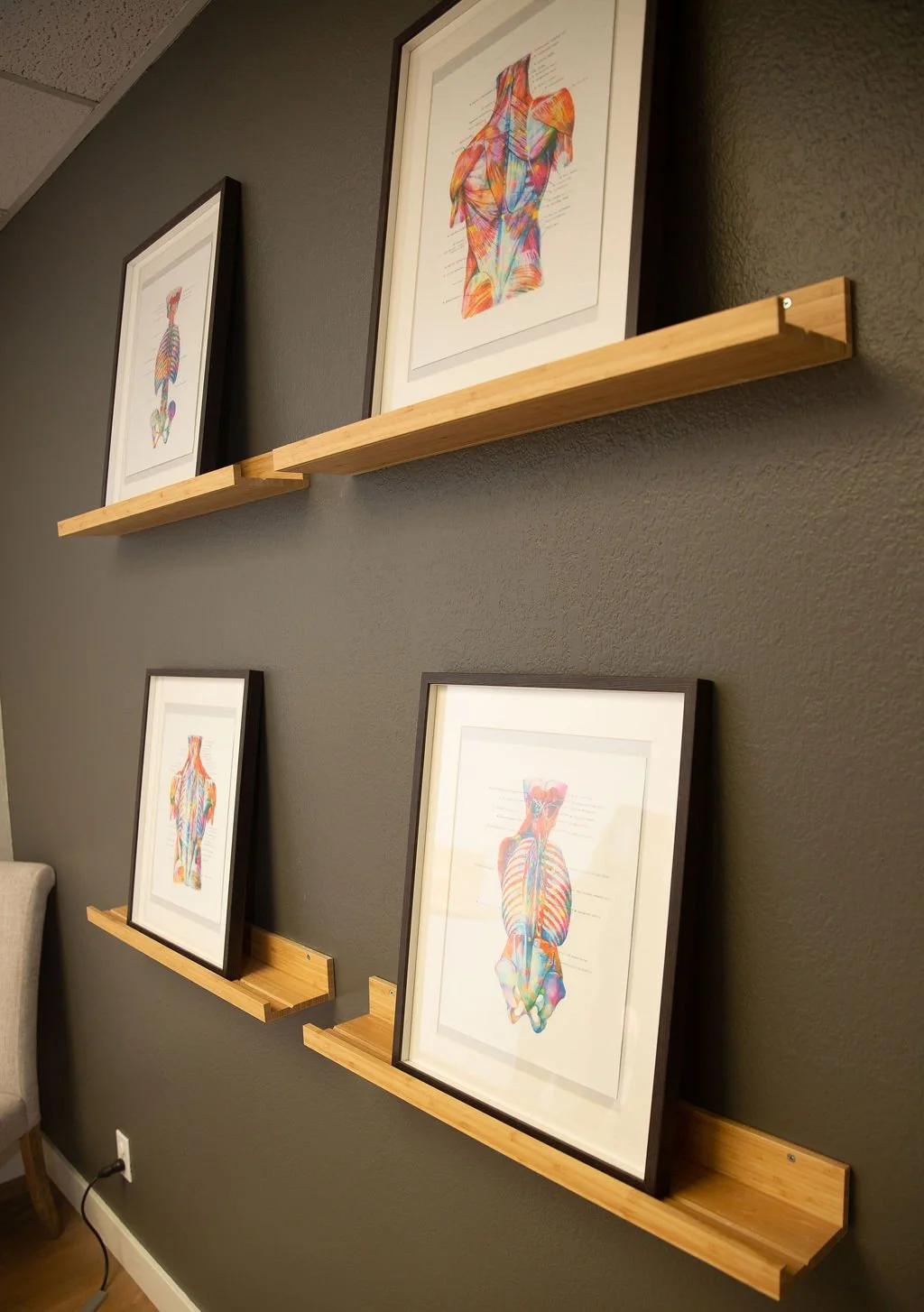
Advanced Recovery Therapies
Services:
-
Shockwave Therapy is a non-invasive treatment that uses acoustic sound waves to stimulate healing in injured tissues. It’s highly effective for chronic musculoskeletal conditions, especially those that haven’t responded to other treatments.
Commonly treated conditions include:
Plantar fasciitis
Tendinopathies (Achilles, patellar, rotator cuff)
Tennis/Golfer’s elbow
Calcific shoulder tendinitis
Shin splints and more
By increasing blood flow, breaking down scar tissue, and stimulating cellular repair, Shockwave Therapy helps reduce pain, improve mobility, and accelerate recovery—without the need for surgery or prolonged downtime.
-
Class IV infrared laser therapy is a non-invasive treatment that uses high-powered lasers (with output power >500 milliwatts) in the infrared light spectrum (typically 800–1064 nanometers) to penetrate deep into tissues. This stimulates biological processes at the cellular level, leading to reduced pain, decreased inflammation, and accelerated healing.
The treatment works via photobiomodulation, where light energy is absorbed by cells, enhancing mitochondrial function and increasing ATP production, which promotes tissue repair and reduces pain signals.
Commonly treated conditions include:
Musculoskeletal Disorders
Arthritis (osteoarthritis, rheumatoid arthritis)
Tendonitis (e.g., Achilles tendonitis, rotator cuff tendonitis)
Bursitis
Plantar fasciitis
Carpal tunnel syndrome
Myofascial pain syndrome
Sports Injuries
Muscle strains and sprains
Ligament injuries (e.g., ACL sprains)
Contusions and bruising
Joint inflammation
Tennis elbow / Golfer's elbow
Chronic Pain Conditions
Fibromyalgia
Chronic neck, back, or shoulder pain
Sciatica
Neuropathic pain
TMJ (temporomandibular joint) dysfunction
Post-Surgical or Injury Recovery
Post-operative wound healing
Soft tissue repair
Scar tissue remodeling
Swelling and edema reduction
-
Ultrasound therapy is a non-invasive therapeutic modality that uses high-frequency sound waves (typically 1–3 MHz) to treat soft tissue injuries, reduce pain, promote healing, and increase tissue flexibility. It is commonly used in rehabilitation settings.
Thermal Effects (Continuous Ultrasound)
The sound waves cause vibration of tissue molecules, generating deep heat in muscles, tendons, and ligaments.
This heat leads to:
Increased blood flow
Relaxation of muscle spasms
Improved tissue elasticity
Faster metabolic activity promoting healing
Useful for chronic conditions needing increased tissue flexibility and pain relief.
Non-Thermal Effects (Pulsed Ultrasound)
When ultrasound is delivered in pulses (with breaks), heat generation is minimized.
Mechanical effects include:
Cavitation: Formation and oscillation of tiny gas bubbles in tissue fluids that stimulate cell activity.
Acoustic streaming: Movement of fluids around cells enhances nutrient exchange and waste removal.
These effects promote cellular repair, reduce inflammation, and enhance tissue regeneration.
Useful for acute injuries where inflammation control and tissue healing are priorities.
Depth of Penetration
The frequency determines how deep the ultrasound waves penetrate:
1 MHz penetrates up to 5 cm (deep tissues)
3 MHz penetrates 1–2 cm (superficial tissues)
Common Conditions Treated:
Soft Tissue Injuries (sprains, strains)
Tendonitis (e.g., rotator cuff, Achilles)
Bursitis
Ligament injuries
Scar tissue and adhesions
Joint contractures
Muscle spasms
Delayed healing wounds
Plantar fasciitis



